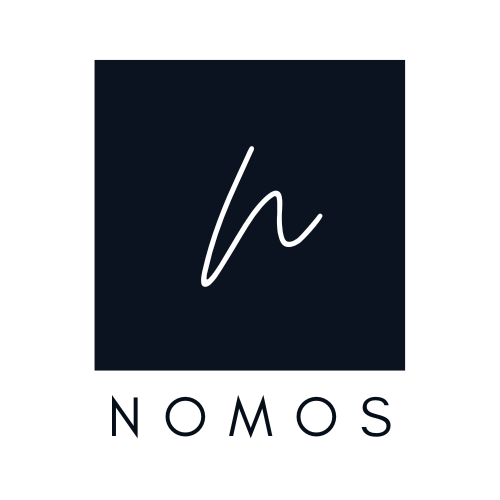NOMOS provides flexible configuration options through both Python API and YAML files, supporting a spectrum from no-code to full-code development.
Python API Configuration Basic Agent Setup from nomos import Agent, AgentConfig from nomos.models.agent import Step, Route from nomos.models.flow import FlowConfig from nomos.llms import LLMConfig from math import sqrt, pow def get_time (): """Get the current time. Returns: str: The current time in string format. """ from datetime import datetime return f "Current time: { datetime.now() } " steps = [ Step( step_id = "start" , description = "Greet and offer to tell the time or perform calculations." , available_tools = [ "get_time" , "sqrt" ], routes = [Route( target = "calculation" , condition = "User wants to do math" ), Route( target = "end" , condition = "User is done" )], ), Step( step_id = "calculation" , description = "Perform mathematical calculations for the user." , available_tools = [ "sqrt" , "pow" ], routes = [Route( target = "end" , condition = "Calculation is complete" )], ), Step( step_id = "end" , description = "Say goodbye." , ), ] # Define flows for better organization flows = [ FlowConfig( flow_id = "math_workflow" , description = "Handle mathematical calculations" , enters = [ "calculation" ], exits = [ "end" ], components = { "memory" : { "llm" : { "provider" : "openai" , "model" : "gpt-4o-mini" }, "retriever" : { "method" : "embedding" , "kwargs" : { "k" : 3 }} } } ) ] config = AgentConfig( name = "clockbot" , llm = LLMConfig( provider = "openai" , model = "gpt-4o-mini" ), steps = steps, flows = flows, start_step_id = "start" , persona = "You are a friendly assistant that can tell time and perform calculations." , max_errors = 3 , max_iter = 10 , ) agent = Agent.from_config(config, tools = [get_time, sqrt, pow ]) session = agent.create_session() # ... interact with session.next(user_input)
YAML Configuration Basic YAML Config name : utility-bot persona : You are a helpful utility bot that can perform various calculations and data operations. # External schema definitions (optional) schemas : user_profile : 'schemas/user_profile.json' order_schema : 'models/order.py' steps : - step_id : start description : Handle user requests for mathematical operations or data processing. available_tools : - sqrt - load_json - combinations routes : - target : end condition : User is done with calculations - step_id : end description : Say goodbye to the user. start_step_id : start max_errors : 3 # Maximum consecutive errors before stopping max_iter : 10 # Maximum iterations per interaction # Server configuration (optional) server : port : 8000 host : "0.0.0.0" workers : 1 security : # Authentication enable_auth : false auth_type : jwt # or "api_key" jwt_secret_key : "$JWT_SECRET_KEY" # Rate limiting enable_rate_limiting : false redis_url : "$REDIS_URL" # Redis URL for rate limiting rate_limit_times : 100 # Number of allowed requests rate_limit_seconds : 60 # Time period for rate limiting in seconds # CSRF protection enable_csrf_protection : false csrf_secret_key : "$CSRF_SECRET_KEY" # CORS configuration allowed_origins : - "*" # Use specific domains in production
Schema Configuration Define reusable schemas for structured responses in your agent:
schemas : user_profile : 'schemas/user_profile.json' order_schema : 'models/order.py' validation_rules : 'schemas/validation.json'
JSON Schema Files Create structured data models using JSON Schema:
// schemas/user_profile.json { "$schema" : "http://json-schema.org/draft-07/schema#" , "type" : "object" , "properties" : { "name" : { "type" : "string" , "description" : "User's full name" }, "email" : { "type" : "string" , "description" : "User's email address" , "format" : "email" }, "preferences" : { "type" : "object" , "properties" : { "theme" : { "type" : "string" , "enum" : [ "light" , "dark" , "auto" ] } } } }, "required" : [ "name" , "email" ] }
Python Schema Files Define models using Pydantic classes:
# models/order.py from pydantic import BaseModel, EmailStr from typing import List, Optional from enum import Enum class OrderStatus ( str , Enum ): PENDING = "pending" CONFIRMED = "confirmed" SHIPPED = "shipped" class OrderItem ( BaseModel ): product_id: str name: str quantity: int price: float class Order ( BaseModel ): order_id: str customer_email: EmailStr items: List[OrderItem] status: OrderStatus = OrderStatus. PENDING total_amount: float
Schema Referencing Reference schemas in your step configurations:
steps : - step_id : collect_profile description : Collect user profile information answer_model : user_profile # References JSON schema - step_id : process_order description : Process customer order answer_model : order_schema.Order # Specific Python model - step_id : validate_data description : Validate input data answer_model : validation_rules # Main schema model
Schema Benefits
Reusability Use schemas across multiple agents and steps
Maintainability Update schemas without changing agent configuration
Type Safety Full validation with detailed error messages
Version Control Track schema changes separately
Advanced YAML Configuration
Barista Agent Example See a comprehensive configuration example
Server Configuration Configure the FastAPI server settings and security features:
server : port : 8000 host : "0.0.0.0" workers : 1 security : # Authentication configuration enable_auth : true auth_type : jwt # Options: "jwt", "api_key" jwt_secret_key : "$JWT_SECRET_KEY" # api_key_url: "https://your-api.com/validate-key" # For API key auth # Rate limiting configuration enable_rate_limiting : true redis_url : "$REDIS_URL" # Redis URL for rate limiting rate_limit_times : 100 # Number of allowed requests rate_limit_seconds : 60 # Time period for rate limiting in seconds # CSRF protection configuration enable_csrf_protection : true csrf_secret_key : "$CSRF_SECRET_KEY" # CORS configuration allowed_origins : - "https://your-frontend.com" - "http://localhost:3000" # For development # Session store configuration session : store_type : "memory" # Options: "memory", "production" default_ttl : 3600 cache_ttl : 3600 # For production session store: # database_url: "$DATABASE_URL" # redis_url: "$REDIS_URL" # kafka_brokers: "$KAFKA_BROKERS" # events_enabled: true
Security Configuration Examples JWT Authentication
API Key Authentication
API Key with Environment Variables
Production Setup
server : security : enable_auth : true auth_type : jwt jwt_secret_key : "$JWT_SECRET_KEY" enable_rate_limiting : true rate_limit : "100/minute"
Important Security Warning: Token Generation Endpoint The /auth/token endpoint is automatically exposed when JWT authentication is enabled. This endpoint allows generating JWT tokens for testing purposes and should never be available in production environments . Security measures in place:
It requires the enable_token_endpoint configuration option to be set to true in development or testing configurations.
It should be disabled or removed in production deployments
For production JWT authentication, implement your own secure token generation service that:
Validates user credentials properly
Uses secure session management
Implements proper user authentication flows
Issues tokens with appropriate expiration times
Logs authentication attempts for security monitoring
LLM Configuration Supported Providers OpenAI
Mistral
Google Gemini
Ollama
HuggingFace
Anthropic
from nomos.llms import LLMConfig llm = LLMConfig( provider = "openai" , model = "gpt-4o-mini" )
YAML LLM Configuration llm : provider : openai model : gpt-4o-mini
Generate YAML Schema Create a JSON schema for your configuration to enable editor validation and autocompletion:
nomos schema --output agent.schema.json
Include the schema in your YAML file:
Local Schema
Remote Schema
# yaml-language-server: $schema=./agent.schema.json
New in v0.2.4 : You can now specify tools directly in your agent configuration file
name : my-agent persona : A helpful assistant steps : - step_id : start # ... step configuration start_step_id : start # Tool configuration - NEW in v0.2.4 tools : tool_files : - "barista_tools.py" # Python module - "tools.my_tools" # File path external_tools : - tag : "@pkg/itertools.combinations" name : "combinations" - tag : "@crewai/FileReadTool" name : "file_read_tool" - tag : "@langchain/google_search" name : "google_search" tool_arg_descriptions : add_to_cart : coffee_type : "Coffee type (e.g., Espresso, Latte, Cappuccino)" size : "Size of the coffee (Small, Medium, Large)"
You can organize your own tools in Python modules:
# tools/my_tools.py def greet ( name : str ) -> str : """Return a simple greeting.""" return f "Hello { name } !" tools = [greet]
# In config.agent.yaml tools : tool_files : - "my_tools" # Load as module - "tools/custom_tools.py" # Load as file path
nomos run --config config.agent.yaml --tools tools/my_tools.py
Step Examples You can provide decision examples for any step. Each example contains the user context and the expected decision. NOMOS retrieves relevant examples using embeddings and includes them in the system prompt to guide the model.
steps : - step_id : start description : Initial step examples : - context : "User asks for the time" decision : "Answer with the current time." visibility : always - context : "sqrt 4" decision : "Call sqrt tool" visibility : dynamic
Use the max_examples and threshold settings in AgentConfig to control how many examples are displayed and the minimum similarity required.
Error Handling Configuration name : my-agent # ... other config max_errors : 3 # Maximum consecutive errors before stopping max_iter : 10 # Maximum iterations per interaction
Environment Variables Common environment variables for NOMOS agents:
Variable Description Required OPENAI_API_KEYOpenAI API key If using OpenAI MISTRAL_API_KEYMistral API key If using Mistral GOOGLE_API_KEYGoogle API key If using Gemini HUGGINGFACE_API_TOKENHuggingFace token If using HuggingFace ANTHROPIC_API_KEYAnthropic API key If using Anthropic JWT_SECRET_KEYJWT secret key If using JWT authentication CSRF_SECRET_KEYCSRF secret key If using CSRF protection API_KEY_VALIDATION_URLAPI key validation endpoint URL If using API key authentication DATABASE_URLDatabase connection URL If using production session store REDIS_URLRedis connection URL If using Redis for sessions KAFKA_BROKERSKafka broker URLs If using Kafka for events
Using Environment Variables in Configuration You can reference environment variables in your YAML configuration using the $ prefix:
name : my-secure-agent llm : provider : openai api_key : "$OPENAI_API_KEY" # References environment variable server : security : jwt_secret_key : "$JWT_SECRET_KEY" csrf_secret_key : "$CSRF_SECRET_KEY" session : database_url : "$DATABASE_URL" redis_url : "$REDIS_URL"
Variable Description Required OPENAI_API_KEYOpenAI API key If using OpenAI MISTRAL_API_KEYMistral API key If using Mistral GOOGLE_API_KEYGoogle API key If using Gemini HUGGINGFACE_API_TOKENHuggingFace token If using HuggingFace ANTHROPIC_API_KEYAnthropic API key If using Anthropic
Complete Configuration Example Here’s a comprehensive configuration example that includes all security features:
JWT Authentication
API Key Authentication
name : "secure-production-agent" persona : "You are a secure AI assistant with comprehensive security features enabled." # Agent steps steps : - step_id : "start" description : "Initial greeting and task identification" available_tools : [ "get_time" , "calculator" ] routes : - target : "end" condition : "Task is complete" - step_id : "end" description : "Final response and goodbye" start_step_id : "start" max_errors : 3 max_iter : 10 # LLM configuration llm : provider : "openai" model : "gpt-4o-mini" temperature : 0.7 max_tokens : 1000 api_key : "$OPENAI_API_KEY" # Server configuration with JWT security server : port : 8000 host : "0.0.0.0" workers : 4 security : # JWT Authentication enable_auth : true auth_type : "jwt" jwt_secret_key : "$JWT_SECRET_KEY" # Rate limiting enable_rate_limiting : true rate_limit : "100/minute" # CSRF protection enable_csrf_protection : true csrf_secret_key : "$CSRF_SECRET_KEY" # CORS configuration allowed_origins : - "https://your-frontend.com" - "https://admin.your-domain.com" # Production session store session : store_type : "production" default_ttl : 3600 cache_ttl : 1800 database_url : "$DATABASE_URL" redis_url : "$REDIS_URL" kafka_brokers : "$KAFKA_BROKERS" events_enabled : true # Tools configuration tools : files : - "custom_tools.py" ext : - tag : "@pkg/math.sqrt" name : "sqrt" - tag : "@langchain/calculator" name : "calculator" # Logging configuration logging : enable : true handlers : - type : "stderr" level : "INFO" format : "{time:YYYY-MM-DD HH:mm:ss} | {level} | {message}" - type : "file" level : "DEBUG" format : "{time:YYYY-MM-DD HH:mm:ss} | {level} | {file}:{line} | {message}"
Configuration Examples More configuration examples are available in the cookbook:

